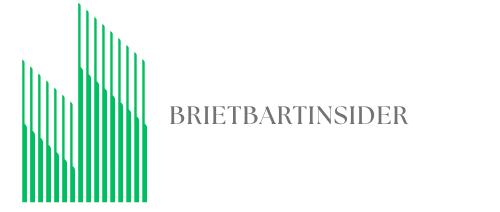Table of Contents
ToggleBurnout can feel like running a marathon only to discover you’re stuck on a treadmill. It’s exhausting, frustrating, and leaves you questioning your life choices. But what happens after that relentless grind finally takes its toll? The good news is there’s a way back to sanity, and it starts with the right habits.
Imagine trading in those late-night work binges for cozy evenings with a good book or swapping endless to-do lists for a more balanced approach to life. By adopting simple yet effective routines, anyone can rise from the ashes of burnout like a phoenix—albeit a slightly tired one. Let’s dive into the habits that not only help in recovery but also pave the way for a more fulfilling, energized life. After all, who wouldn’t want to be a happier, healthier version of themselves?
Understanding Burnout
Burnout represents a state of physical, emotional, and mental exhaustion. It often arises from prolonged and excessive stress, impacting overall well-being.
Definition of Burnout
Burnout occurs when an individual feels overwhelmed and drained from persistent demands at work or in personal life. This condition affects a person’s ability to function effectively, leading to a sense of disconnection and a lack of accomplishment. Research indicates that burnout can stem from high-pressure environments and unbalanced workloads. The World Health Organization classifies it as an occupational phenomenon, emphasizing its serious nature.
Signs and Symptoms of Burnout
Signs and symptoms vary widely among individuals. Common indicators include chronic fatigue, insomnia, and emotional instability. Many people also experience cynicism or detachment from work and colleagues. Others report a decline in performance and satisfaction. Identification of these symptoms is crucial, as early recognition facilitates timely intervention and recovery.
Importance of Habits After Burnout
Adopting new habits plays a crucial role in recovery from burnout. These habits help individuals regain strength and improve overall well-being.
Recovery Process
Establishing a structured recovery process is vital. It fosters resilience and helps individuals manage their stress levels effectively. Implementing daily routines leads to stability and predictability. Setting realistic goals encourages a gradual return to productivity. Practicing mindfulness promotes emotional awareness and reduces stress. Engaging in regular physical activity enhances mood and energy levels. Support from friends and professionals aids in navigating the recovery journey.
Long-term Benefits
Incorporating healthy habits results in significant long-term benefits. Enhanced emotional stability leads to better relationships and improved communication. Adopting a balanced lifestyle fosters a greater sense of fulfillment. Increased productivity arises from better focus and motivation. Lower stress levels contribute to overall mental health. Developing a strong support network reduces feelings of isolation. Embracing self-care practices breeds resilience against future burnout risks.
Healthy Habits to Incorporate
Recovery from burnout hinges on adopting healthy habits. Fostering well-being improves both physical and mental health.
Mindfulness and Meditation
Mindfulness has proven effective for reducing stress. Practitioners often engage in focused breathing techniques or meditation sessions to cultivate awareness. Regular practice enhances emotional control and allows individuals to observe thoughts without judgment. Incorporating just a few minutes of mindfulness daily can yield significant benefits. Participants frequently report improved concentration and clearer decision-making. Furthermore, these practices promote a sense of calm during stressful moments.
Physical Activity
Engaging in regular physical activity benefits mental health immensely. Exercise releases endorphins, which uplift mood and alleviate symptoms of anxiety and depression. Individuals can choose activities they enjoy, such as walking, swimming, or dancing, to ensure consistency. Scheduling workouts boosts motivation and incorporates movement into daily routines. Consistency matters; even short sessions can lead to measurable improvements in energy and emotional well-being. Results often manifest as better sleep quality and increased resilience against stress.
Nutrition and Hydration
Proper nutrition and hydration play critical roles in overall recovery. A well-balanced diet rich in fruits, vegetables, whole grains, and lean proteins supports mental clarity and physical health. Including foods high in antioxidants can combat oxidative stress linked to burnout. Staying hydrated enhances cognitive function and promotes energy levels throughout the day. Individuals benefit from incorporating hydration reminders into their routines, ensuring they consume enough water. Ultimately, making mindful food choices contributes to enhanced mood stability and focus.
Building a Support System
Building a strong support system plays a crucial role in recovering from burnout. Friends, family, and professionals can provide the necessary encouragement and resources.
Importance of Social Connections
Social connections significantly enhance emotional well-being. Supportive relationships offer understanding and validation, essential for coping with feelings of isolation that often accompany burnout. Engaging with trusted friends or family members helps individuals share experiences and insights. Participation in community groups fosters belonging, creating an environment where individuals feel understood. Regular interactions increase resilience. Maintaining these connections serves as a reminder of shared experiences and provides comfort, ultimately aiding in the recovery process.
Seeking Professional Help
Seeking professional help can expedite recovery from burnout. Mental health professionals provide valuable guidance and therapeutic approaches tailored to individual needs. Therapy options, such as cognitive-behavioral therapy, focus on developing coping strategies. Regular consultations allow individuals to explore deeper underlying issues contributing to burnout. Besides therapy, support groups offer a shared space for discussing similar experiences. Professionals can also assist in setting realistic recovery goals. Prioritizing this step can lead to a faster return to a balanced state of well-being.
Setting Boundaries
Establishing boundaries proves essential in recovery from burnout. Setting limits fosters a supportive environment for oneself, allowing the transition back to a balanced life.
Work-Life Balance
Creating an effective work-life balance encourages productivity without overwhelming stress. Allocating specific hours for work and personal time enables individuals to recharge. Personal priorities come into clearer focus when schedules align with values. Engaging in hobbies, spending time with loved ones, or simply enjoying quiet moments supports mental health. Setting boundaries around work communications during personal hours prevents burnout recurrences.
Learning to Say No
Learning to say no becomes a crucial skill for managing energy and time. Expressing limits on commitments helps prioritize essential tasks and responsibilities. Choosing not to take on additional projects preserves valuable resources. Clarifying one’s availability affirms personal and professional boundaries. Embracing this practice guarantees that obligations align with one’s capacity, significantly reducing stress levels. Cultivating this habit enhances self-respect and protects against overextension, offering a clearer path towards recovery.
Recovering from burnout is a journey that requires intentional changes in daily habits. By embracing healthier routines and setting boundaries, individuals can reclaim their energy and passion for life. Mindfulness practices and regular physical activity serve as powerful tools in this process, fostering emotional resilience and clarity.
Building a strong support network is equally essential, providing encouragement and understanding along the way. With the right habits and support, it’s possible to not only recover from burnout but also to thrive in a more balanced and fulfilling life. Prioritizing self-care and well-being will lead to lasting benefits that extend beyond the recovery phase.








